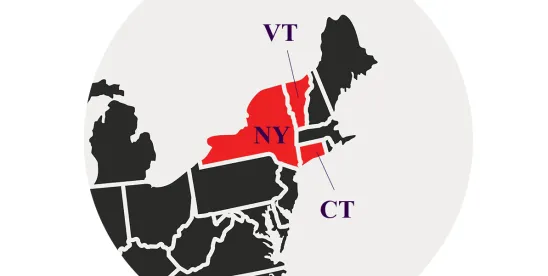So the biggest TCPA case impacting the lead generation industry right now is Mantha v Quote Wizard–a case I discussed at length at Lead Generation World and that I will discuss again at LeadsCon next Month.
You’ll recall that the Magistrate Judge’s ruling in Mantha was one of the scariest TCPA cases of all time–it held, in essence, that an online consent disclosure is not valid unless a consumer first accepts an ESIGN disclosure agreeing to receive records electronically form the website operator (publisher).
That is, of course, not at all what the FCC’s relevant rulings and implementing regulations say on the subject and, mercifully, the district court in (mostly) adopting the Magistrate Judge’s recommendations did not adopt that portion of the analysis.
So what does that mean on the ESIGN issue?
Well we have one Magistrate Judge in Massachusetts that really does not like online consent disclosure. But since the district court judge did not adopt that portion of the ruling we can assume that most other courts will view the original Mantha ruling as scarcely-persuasive authority. That’s not to say its dead letter–the district court did not expressly sustain an objection to that portion of the order–but it isn’t likely to move many needles out there.
So crisis averted, for now.
That’s not to say that QuoteWizard–and lead generators and purchasers– is/are out of trouble, however. Far from it.
In Mantha v. Quotewizard, Civil No. 19-12235-LTS, 2022 U.S. Dist. LEXIS 19502 (D. Mass. February 3, 2022) the district court denied QuoteWizard’s summary judgment effort and granted partial summary judgement to the Plaintiff on the issue of consent.
And it is the court’s approach to the lead purchase piece of the case that merits careful review by anyone that is buying leads out there.
So here’s what happened:
-
Fenix Media is based in Bosnia and says it operates the Snappy Auto website.
-
Plural bought Mantha’s lead from Fenix, RevPoint purchased the lead from Plural, and QuoteWizard purchased it from RevPoint.
-
Each entity provided contractual guarantees that the lead was TCPA-compliant.
-
RevPoint provided to QuoteWizard information relevant to Mantha which included that the source lead was the Snappy Auto website.
-
Two IP addresses were made known through discovery as the IP addresses associated with the giving of consent by Mantha, with one belonging to a New Jersey customer and the other to a Massachusetts customer.
-
They, or family members with access to those IP addresses denied under oath having any association with Mantha or ever visiting the Snappy Auto website.
-
The information provided to QuoteWizard also included an identification number called a “Jornaya LeadiD.”
-
Jornaya is a company providing lead verification services and is used to help verify consent.
-
A Jornaya representative testified under oath that the LeadiD number allegedly associated with Mantha was not connected to the Snappy Auto website or to Mantha.
The Court finds that these facts are insufficient to overcome the Plaintiff’s testimony that he did not visit the Snapp Auto website. In essence, the Court finds that Plaintiff’s denial of visiting the site is more powerful evidence than Fenix’ downstream assertion that someone visited the site from the IP addresses at issue.
In other words, the Court found that Fenix–or someone in the lead purchase chain–was either a big fat liar or was itself the victim of a fraud by someone who falsely supplied the Plaintiff’s number. But the Court credited the Plaintiff’s version of events and entered JUDGMENT against QuoteWizard on the issue of consent.
Critically the Court also refused to acknowledge a good faith defense in this context–there’s a petition to the FCC on this point folks, and this is why.
The Court determined that Quote Wizard should be STRICTLY liable for the calls and texts to the Plaintiff, even if it believed in good faith it had perfectly valid consent to call.
In other words, lead buyers have no defense where they are victimized by top-of-the-funnel fraud. The only way to be safe is to prevent lead fraud (call me), call only your own generated leads (with bot detection), or use Safe Select or the equivalent when calling third-party leads (and never using prerecorded calls.)
So, at bottom, even if Quote Wizard did nothing “wrong” here–it is being held liable for the calls it made to the Plaintiff.
Now, the larger issue is whether Quote Wizard will also be held liable for calls made to class members. And that is where things get really interesting. Will the Court find, for instance, that every lead supplied by Fenix is vulnerable for the same reasons as the Plaintiff’s lead was?
The Mantha case is at an interesting inflection point. QuoteWizard has lost all of its major substantive defenses, but it is far from dead on the class issue. It doesn’t seem likely that every lead Fenix supplied was bogus. So how can the Court determine which leads are valid and which aren’t? And given that the case is broader than Fenix, how can the Court determine which lead supplier was providing bogus leads and which was supplying valid leads?
And that question–ladies and gentlemen–may hold the key to the survival of an industry. If a lead buyer can’t rely on consent from a third party because a court may find that all leads purchased lack consent–even if that is not factually the case–how can lead purchase continue?
Much is riding on the outcome of Mantha. And I will keep paying very close attention.




 />i
/>i

